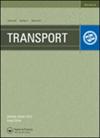船用燃油性能对点火、喷射延迟和能效的影响
IF 1.3
4区 工程技术
Q3 TRANSPORTATION SCIENCE & TECHNOLOGY
引用次数: 2
摘要
根据国际内燃机理事会(CIMAC)和国际海事组织(IMO)的统计,合理选择船用燃料油(MBF)的性能是改善各类船用柴油机(DEs)运行条件和能效的有效途径。该出版物介绍了重质和馏分MBF特性对不同DE类型特性影响的研究结果:高速(Caterpillar 3512B, MTU 8V 396TB),中速(SKL VDS 48/42, ChN 26.5/31)和低速(MAN B&W 6S60MC)。工作的目的是形成一个评估船用燃料特性对不同类型船舶动力装置能源性能影响的方法框架。数值方法表明,在ISO 8217:2017标准规定的船用燃料密度和粘度选择不当的情况下,比油耗的变化可达低速10%,中速4.7%和高速2.3%,当密度从轻级到1010 kg/m3变化时,比油耗的变化可达3…4%。在低粘度下,当密度增加到1030kg /m3时,低速发动机的相对油耗增加5%。建议不要使用密度> ~ 1010kg /m3、粘度<300 ~ 400mm2 /s的燃料。基于相对油耗变化的多参数图,通过密度和粘度对燃油喷射和燃烧特性的影响,为特定DE模型的船用燃油性能合理选择提供了解决方案。本文章由计算机程序翻译,如有差异,请以英文原文为准。
INFLUENCE OF MARINE FUEL PROPERTIES ON IGNITION, INJECTION DELAY AND ENERGY EFFICIENCY
According to the International Council on Combustion Engines (CIMAC) and International Maritime Organization (IMO) statistics, the rational selection of Marine Bunker Fuel (MBF) properties is an effective way to improve operating conditions and energy efficiency of all types of marine Diesel Engines (DEs). The publication presents the results of studies on the influence of heavy and distillate MBF properties on the characteristics of different DE types: high-speed (Caterpillar 3512B, MTU 8V 396TB), medium-speed (SKL VDS 48/42, ChN 26.5/31) ir low-speed (MAN B&W 6S60MC). The aim of work is to form a methodological framework for assessing the influence of marine fuel properties on the energy performance of different types of ship power plants. Numerical methods show that in the case of unfavourable selection of the density and viscosity of marine fuels regulated by the standard ISO 8217:2017, the changes in specific fuel consumption be reach up to 10% low-speed, 4…7% medium-speed, and 2…3% high-speed DEs. As the density varies from light grades to 1010 kg/m3, the change in be is 3…4%. At low viscosity, as the density increases to 1030 kg/m3, the low-speed engine comparative fuel consumption increases by 5%. It is recommended not to use fuel with a density >1010 kg/m3 and a viscosity <300…400 mm2/s. Developed solutions for the rational selection of bunkered marine fuel properties for a specific DE model trough the influence of density and viscosity on fuel injection and combustion characteristics based on multiparametric diagrams of relative fuel consumption change.
求助全文
通过发布文献求助,成功后即可免费获取论文全文。
去求助
来源期刊

Transport
Engineering-Mechanical Engineering
CiteScore
3.40
自引率
5.90%
发文量
19
审稿时长
4 months
期刊介绍:
At present, transport is one of the key branches playing a crucial role in the development of economy. Reliable and properly organized transport services are required for a professional performance of industry, construction and agriculture. The public mood and efficiency of work also largely depend on the valuable functions of a carefully chosen transport system. A steady increase in transportation is accompanied by growing demands for a higher quality of transport services and optimum efficiency of transport performance. Currently, joint efforts taken by the transport experts and governing institutions of the country are required to develop and enhance the performance of the national transport system conducting theoretical and empirical research.
TRANSPORT is an international peer-reviewed journal covering main aspects of transport and providing a source of information for the engineer and the applied scientist.
The journal TRANSPORT publishes articles in the fields of:
transport policy;
fundamentals of the transport system;
technology for carrying passengers and freight using road, railway, inland waterways, sea and air transport;
technology for multimodal transportation and logistics;
loading technology;
roads, railways;
airports, ports, transport terminals;
traffic safety and environment protection;
design, manufacture and exploitation of motor vehicles;
pipeline transport;
transport energetics;
fuels, lubricants and maintenance materials;
teamwork of customs and transport;
transport information technologies;
transport economics and management;
transport standards;
transport educology and history, etc.
 求助内容:
求助内容: 应助结果提醒方式:
应助结果提醒方式:


